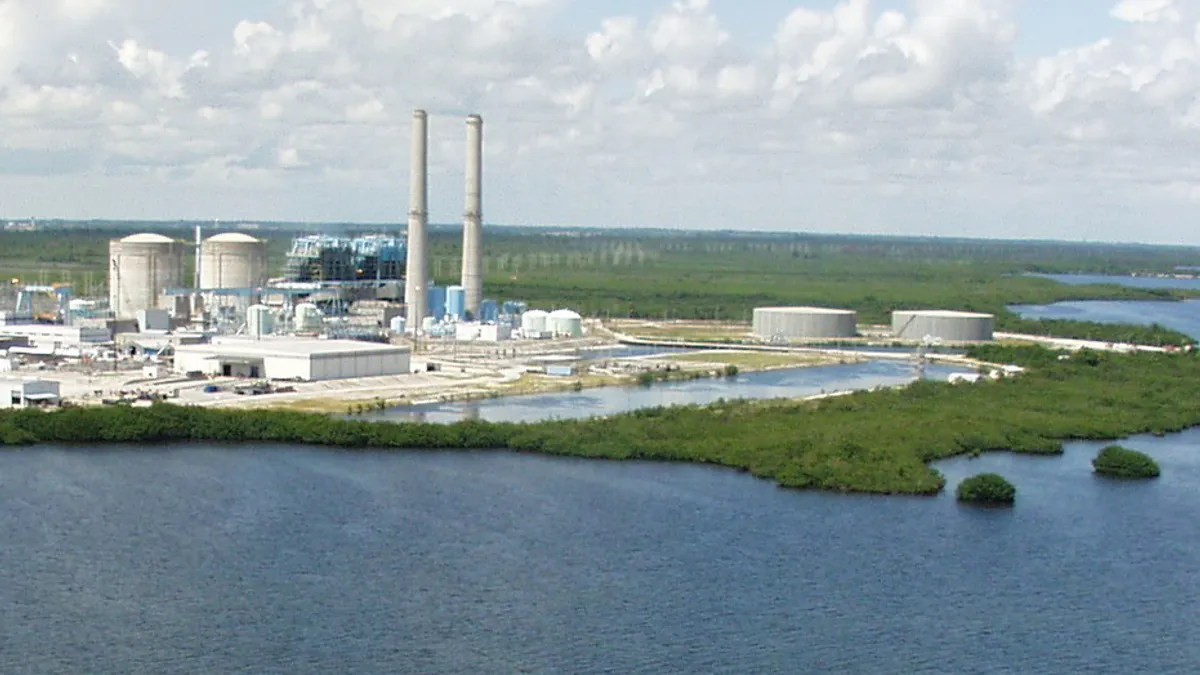Dive Brief:
- Florida regulators have approved a request by Florida Power & Light Co. to defer charging customers for $22 million associated with development of new generation at the Turkey Point facility near Miami..
- While the utility could request approval for the charge next year, in the meantime it will save customers 34 cents a month. By the end of the year, customers will already have paid $282 million for the project, according to the Palm Beach Post.
- Development of two new reactors is on hold following a court's decision that more environmental mitigation would be required.
Dive Insight:
FPL customers will avoid, for now, a new charge on bills related to the development of new reactors. But the utility is preparing a $1.33 billion rate case it will submit to regulators in August, and by the end of this year, will have charged customer more than $280 million for the Turkey Point project.
Utility critics told the newspaper the decision is a sign FPL's project is a bad deal for customers, but the utility maintains it is sound and is pushing ahead.
SACE Florida Energy Policy Attorney George Cavros said via a statement to the news outlet, “It is clear that FPL could not prove this year that its proposed nuclear reactors were a good deal for customers. It’s good news that customers will not be throwing away another $22 million dollars of good money after bad, but the burden remains on FPL in future proceedings to prove that any dollars spent on the project were based on a feasibility analysis.”
A utility spokesman told the Post “we believe there is tremendous value for our customers in FPL having the option to proceed with new, reliable, emissions-free nuclear energy.”
FPL is expected to file a rate a rate case in August that could boost a customer's monthly bill by 27%, raising fees on not just its base rates, but also accounts in arrears, connection fees and late charges. If the utility's full rate increase were approved, the average customer's bill would rise by $14.67 a month, to $71.67.
Turkey Point already has two units generating power, but those have been adding to customer bills as well. In addition to the controversy surrounding building the new generation, Turkey Point's cooling canals leaked salty water into Biscayne Bay.
The state has directed the utility to improve water quality around the plant over the next 10 years, eliminating a salt plume of water which has been discharging into Biscayne Bay. The plan calls for FPL to install a recovery system to capture hypersalinated groundwater and store it underground, separate from drinking water sources.















